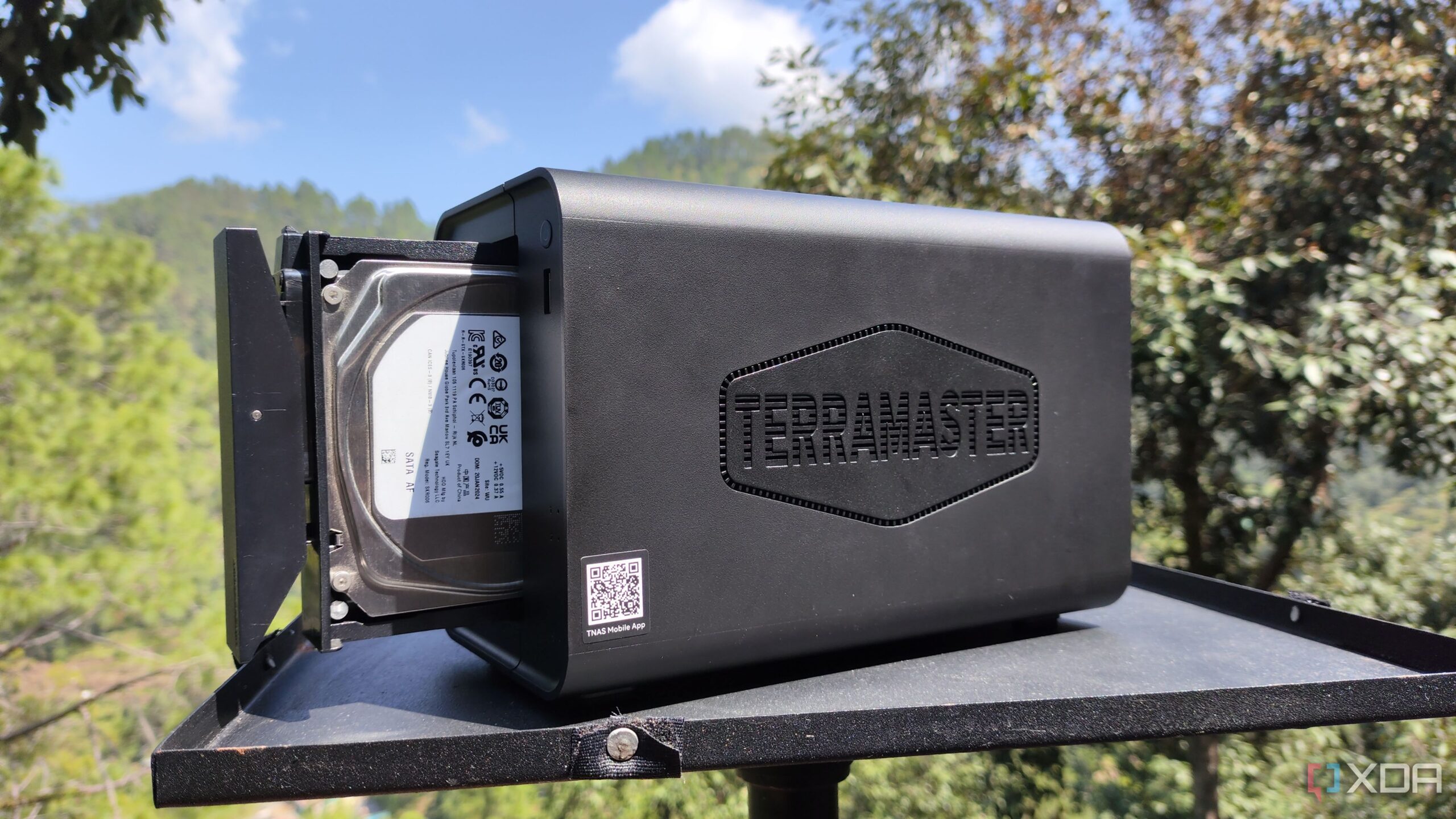Top Stories
NAS Outperforms External SSDs: 6 Key Reasons Why NOW

URGENT UPDATE: New insights reveal that Network Attached Storage (NAS) devices are outperforming external SSDs in speed and efficiency, transforming how users manage data. As of today, users are experiencing significant performance improvements that challenge the long-held belief that external SSDs are the fastest option.
This development is crucial for anyone relying on data storage solutions—whether for personal use, small businesses, or larger enterprises. With the demands for fast access to data growing, understanding how NAS devices can enhance performance is vital.
Key Factors Driving the Speed Surge:
1. **Always-On Availability**: NAS devices offer instant access to files without the hassle of plugging in an external SSD. Unlike external drives that require physical connection and recognition time, NAS systems are integrated directly into users’ file managers. This means immediate access across devices—laptops, tablets, and even older smartphones—without any delays.
2. **Enhanced Caching and Indexing**: NAS devices utilize advanced caching systems that optimize data retrieval. Users report that tasks such as writing or searching for files are significantly faster thanks to dedicated caching spaces and extensive background cataloguing. This anticipatory capability allows NAS systems to manage files efficiently, a feat that standalone SSDs cannot replicate.
3. **Network Optimizations**: Contrary to expectations, wired NAS connections can surpass the transfer speeds of external SSDs. By utilizing fast LAN connections, including options like 2.5/10GbE ports, users can achieve rapid file transfers. Even with Wi-Fi 6, NAS performance remains stable, eliminating issues like random disconnections that often plague external drives.
4. **Parallel Access Capabilities**: NAS systems are designed for multitasking, allowing users to perform multiple operations simultaneously. For example, streaming a large file while syncing another in the background is seamless on a NAS. This multitasking capability significantly enhances the user experience, providing an illusion of speed that external SSDs struggle to match.
5. **Smart Sync and Automation**: The automation features of NAS devices, such as Synology Drive, enable users to back up files effortlessly. Automated syncing means files are securely backed up without the need for manual intervention, allowing users to focus on their work rather than file management.
6. **Workflow Optimization**: The shift to a NAS has revolutionized how users organize and access their files. No longer juggling multiple drives, users can maintain a single, organized source of data accessible from anywhere. This streamlined workflow not only saves time but also enhances productivity.
This shift in data management is not just a technological upgrade; it represents a significant change in user experience. Those who previously relied on external SSDs are now reevaluating their options, recognizing the substantial benefits of NAS systems.
As this trend continues to evolve, experts advise users to consider integrating both NAS and external SSDs into their setups for optimal results. While NAS devices provide extensive features and remote access capabilities, external SSDs remain invaluable for portability and quick sharing.
WHAT’S NEXT: Users are encouraged to explore NAS options that align with their needs, particularly those that support advanced features like automated backups and high-speed connections. As technology continues to advance, staying informed on the latest developments in data storage is essential for maximizing efficiency and performance.
The growing preference for NAS technology signals a shift in how we think about data storage, making this an urgent topic for anyone involved in digital data management. Share this article to keep your network informed about these critical advancements!
-

 Politics2 weeks ago
Politics2 weeks agoDallin H. Oaks Assumes Leadership of Latter-day Saints Church
-

 Sports2 weeks ago
Sports2 weeks agoSteve Kerr Supports Jonathan Kuminga After Ejection in Preseason Game
-

 Business2 weeks ago
Business2 weeks agoTyler Technologies Set to Reveal Q3 2025 Earnings on October 22
-

 Lifestyle2 weeks ago
Lifestyle2 weeks agoDua Lipa Celebrates Passing GCSE Spanish During World Tour
-

 World2 weeks ago
World2 weeks agoD’Angelo, Iconic R&B Singer, Dies at 51 After Cancer Battle
-

 Science2 weeks ago
Science2 weeks agoChicago’s Viral ‘Rat Hole’ Likely Created by Squirrel, Study Reveals
-

 Lifestyle2 weeks ago
Lifestyle2 weeks agoKelsea Ballerini Launches ‘Burn the Baggage’ Candle with Ranger Station
-

 Health2 weeks ago
Health2 weeks agoRichard Feldman Urges Ban on Menthol in Cigarettes and Vapes
-

 Health2 weeks ago
Health2 weeks agoCommunity Unites for Seventh Annual Mental Health Awareness Walk
-

 Entertainment2 weeks ago
Entertainment2 weeks agoZoe Saldana Advocates for James Cameron’s Avatar Documentary
-

 Business2 weeks ago
Business2 weeks agoMLB Qualifying Offer Jumps to $22.02 Million for 2024
-

 Business2 weeks ago
Business2 weeks agoMega Millions Jackpot Reaches $600 Million Ahead of Drawings









